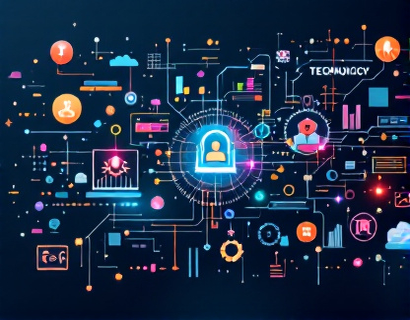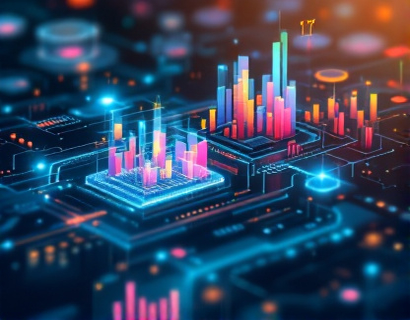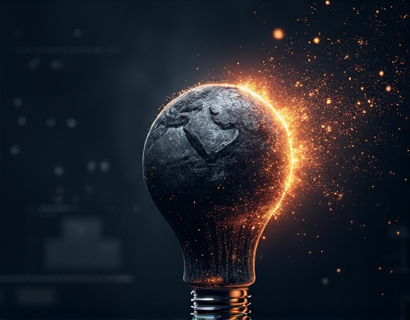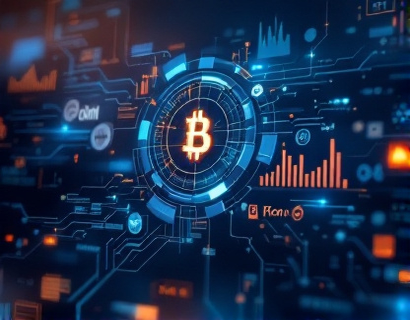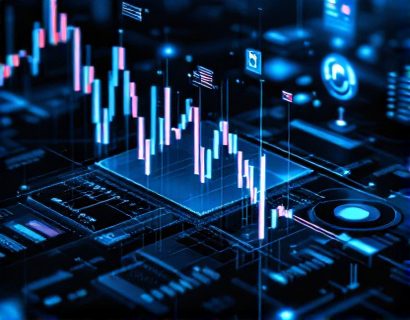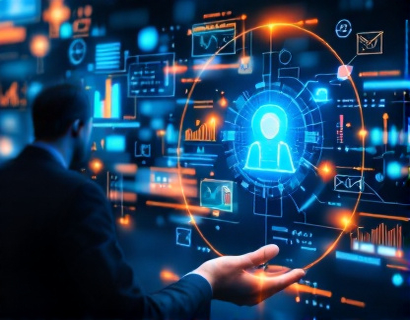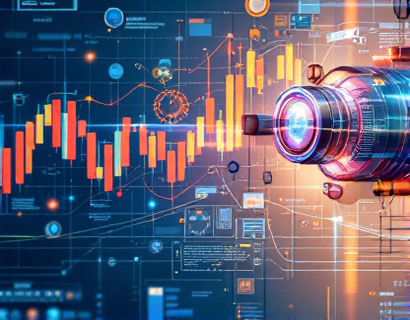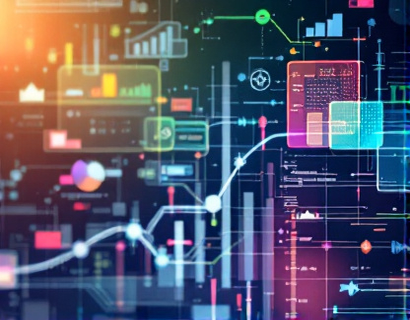Transforming App Ecosystems: The Synergy of Crypto and AI
The integration of cryptocurrency and artificial intelligence is ushering in a new era of digital innovation, fundamentally altering the app ecosystem. This convergence is creating seamless, efficient, and secure solutions that significantly enhance user experiences. As tech enthusiasts and early adopters, understanding the transformative impact of these technologies is crucial for navigating the future of digital interactions.
The foundation of this transformation lies in the unique properties of blockchain technology, which underpins cryptocurrency. Blockchain's decentralized, transparent, and immutable ledger provides a robust framework for building trust and security in digital transactions. When combined with the advanced capabilities of AI, the potential for innovation becomes immense.
Enhanced Security through Cryptographic Techniques
One of the primary benefits of integrating AI with cryptocurrency is the enhancement of security measures. AI algorithms can analyze vast amounts of data to detect and prevent fraudulent activities in real-time. Smart contracts, self-executing contracts with the terms directly written into code, leverage AI to automate and enforce contractual obligations with unprecedented accuracy. This not only reduces the risk of human error but also minimizes the potential for malicious attacks.
Cryptographic techniques, such as public-private key encryption, ensure that data remains secure and private. AI can optimize these processes by dynamically adjusting security protocols based on threat levels, ensuring that user data is always protected. This synergy between AI and cryptocurrency creates a highly secure environment for users, fostering greater trust in digital platforms.
Personalized User Experiences through AI
AI's ability to process and analyze large datasets enables the creation of highly personalized user experiences. In the context of app ecosystems, AI can tailor content, recommendations, and interactions based on individual user preferences and behaviors. This level of personalization not only enhances user satisfaction but also increases engagement and retention.
For instance, AI-driven recommendation engines can suggest apps and services that align with a user's interests and past interactions. This personalized approach is further enriched by blockchain's capability to maintain a transparent and tamper-proof record of user preferences and interactions, ensuring that the data used for personalization is both accurate and secure.
Decentralized Applications and AI Integration
Decentralized applications (dApps) are at the forefront of the app ecosystem transformation. These applications run on blockchain networks, eliminating the need for central authorities and intermediaries. AI enhances dApps by providing intelligent automation and decision-making capabilities. For example, AI can optimize resource allocation, manage supply and demand dynamics, and improve the overall efficiency of dApps.
Moreover, AI can enhance the user interface and experience of dApps by providing intuitive and adaptive interactions. Voice recognition, natural language processing, and predictive analytics are just a few AI technologies that can be integrated into dApps to create more user-friendly and responsive applications.
Tokenization and AI-Driven Market Dynamics
Tokenization, the process of converting assets into tokens on a blockchain, is another area where AI plays a pivotal role. AI can analyze market trends, predict price movements, and optimize token distribution strategies. This data-driven approach helps in creating more stable and attractive tokens, which in turn can boost the adoption of blockchain-based services.
AI-driven market analytics can also identify new opportunities for token issuance and trading, fostering a more dynamic and responsive market. By leveraging AI, the token economy becomes more efficient and accessible, attracting a broader range of participants and driving innovation.
Smart Cities and AI-Enhanced Infrastructure
The impact of AI and cryptocurrency extends beyond digital applications to infrastructure and urban planning. Smart cities leverage blockchain for transparent and secure management of resources, while AI optimizes various city functions such as traffic management, energy distribution, and public safety. Cryptocurrency can facilitate seamless transactions and incentivize participation in these systems.
For example, AI can manage and optimize the use of renewable energy sources by predicting demand and adjusting supply in real-time. Cryptocurrency can serve as a medium of exchange for rewarding citizens for contributing to the city's sustainability goals, such as reducing energy consumption or participating in community initiatives. This integration creates a more efficient and sustainable urban environment.
Healthcare Innovations: AI and Blockchain in Medical Applications
In the healthcare sector, the combination of AI and blockchain is revolutionizing patient care and data management. AI algorithms can analyze medical data to predict disease outbreaks, personalize treatment plans, and improve diagnostic accuracy. Blockchain ensures that patient data is securely stored and shared among authorized healthcare providers, maintaining privacy and integrity.
Smart contracts can automate insurance claims and drug supply chains, reducing fraud and ensuring timely access to essential medications. AI-driven chatbots and virtual assistants powered by blockchain can provide patients with personalized health advice and support, enhancing the overall quality of care.
Supply Chain Transparency and Efficiency
The supply chain industry stands to benefit significantly from the integration of AI and cryptocurrency. AI can optimize logistics by predicting demand, managing inventory, and streamlining transportation routes. Blockchain provides a transparent and immutable record of transactions, ensuring traceability and accountability throughout the supply chain.
Cryptocurrency can facilitate seamless and secure payments between parties, reducing transaction costs and delays. Smart contracts can automate payment processes based on predefined conditions, such as delivery confirmation or quality checks. This combination not only enhances efficiency but also builds trust among supply chain participants.
Education and AI-Powered Learning Platforms
In the realm of education, AI and blockchain are transforming the way we learn and access information. AI-powered learning platforms can adapt to individual learning styles and paces, providing personalized educational content and assessments. Blockchain ensures that educational credentials and achievements are securely stored and verifiable, eliminating the risk of fraud.
Tokenization can also play a role in education by creating decentralized platforms where educators and learners can exchange knowledge and resources. AI can match learners with relevant courses and mentors, while cryptocurrency can serve as a medium of exchange for accessing premium content or services. This creates a more inclusive and dynamic learning ecosystem.
Challenges and Considerations
While the potential benefits are substantial, the integration of AI and cryptocurrency also presents challenges. Regulatory uncertainties, technical complexities, and scalability issues are among the key hurdles that need to be addressed. Ensuring interoperability between different blockchain platforms and AI systems is crucial for widespread adoption.
Moreover, the ethical implications of AI, such as bias and privacy concerns, must be carefully managed. Transparent and responsible AI practices, combined with robust regulatory frameworks, are essential to build a trusted and sustainable ecosystem.
Conclusion
The convergence of cryptocurrency and AI is poised to redefine the app ecosystem, offering unprecedented levels of security, personalization, and efficiency. As these technologies continue to evolve, the possibilities for innovation are vast. Tech enthusiasts and early adopters have a unique opportunity to explore and contribute to this exciting frontier, shaping the future of digital interactions.




